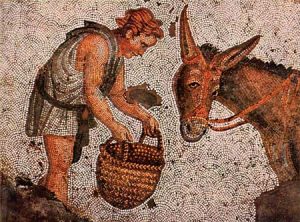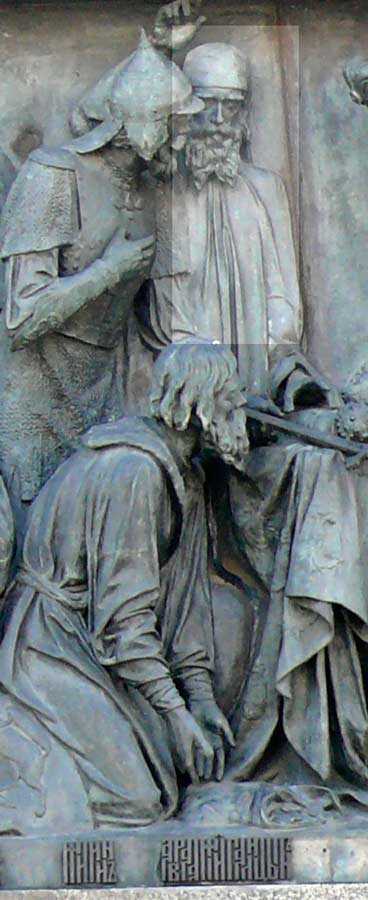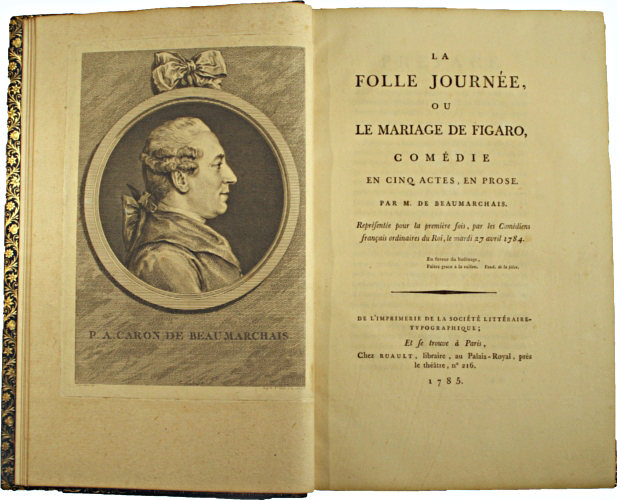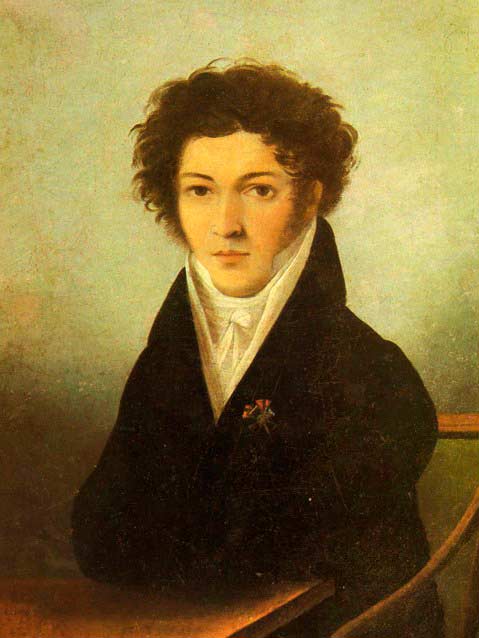Puglia “Golden Ass”
 The Roman writer Apuleius won his main glory with the novel Metamorphoses (Transformations). Subsequently, this novel, in connection with the high appreciation of its readers, received another name, the Golden Ass.
The Roman writer Apuleius won his main glory with the novel Metamorphoses (Transformations). Subsequently, this novel, in connection with the high appreciation of its readers, received another name, the Golden Ass.
At the beginning of the novel, Apuleu says: “I begin the story in order to weave various fables in Milesian manner.” By this, he points to the closeness of his work to the Greek stories of Aristide of Miletus, translated into Latin in the first century. BC er By Cornelius of Sizenna.
An analysis of the novel The Golden Donkey reveals its similarity to the theme of a work by the Greek satirist Lucian, a contemporary of Apuleius. In Lucian this is a small work, it is called “Luky, or the Donkey”.
Patriarch Fotius of Constantinople (9th century) writes in his notes to the books he read that the work of Lucian is an abbreviated retelling of the first two books “Metamorphosis” of a certain Luchia of Patra, and Foti adds that “Lucian composed this work, like the rest, scoffing and mocking the Hellenic superstition, but Luki seriously and faithfully wrote and connected to each other stories about the transformations of some people into others, animals into people and vice versa “(129th book of the” Library “of Fotius).
But both in Lukian, and in Lukiya Patrsky, and in Apuleius, the basis of their works is the folk belief in the miraculous transformations of some creatures into others.
Although Apulia used the finished story in The Golden Ass, he created his original work, a novel at first glance erotic-adventurous, but in essence, in its ideal concept, it was mystic-moral.
The young man Lucius, the protagonist of the Golden Ass, falls into Thessaly, a region famous for magic, and stops at the house of the usurer Milon, whose wife Pamphila was a sorceress. Lucius starts a romance with her maid, Fotida, and she helps him see how Pamphila turns into an owl. He himself, too, is eager to experience the miracle of transformation, and begs Fotida to turn him into a bird. However, by mistake she turns him not into a bird, but into a donkey. In order to regain the human form, it is necessary to chew on rose petals. However, this can only be done the next morning, and Lucius has to spend the night “in the form of an ass.” Unfortunately, robbers attack the moneylender’s house at night, and the donkey falls into their hands. So begin the wanderings of the hero Apuleia, during which he encounters a wide variety of people, hears and sees many interesting things, since no one pays attention to him and everyone frankly reveals the most intimate sides of his soul. He sees many crimes and rudeness, suffers hunger, is not just on the verge of death. Both the robbers and runaway slaves and roving charlatans own the donkey, until finally, having run away from the host, he does not appeal on the seashore to the goddess Isis, asking her to make him human again. The goddess appears to him in a dream and, promising salvation, demands that he now become her faithful servant in gratitude for his help. On another day, during a sacred procession, the priest gives Lucia a wreath of roses and the donkey regains a human form. He becomes an admirer of the goddess, is ordained in her sacraments, and is sent to Rome, where he is honored with the highest initiation.
The author of The Golden Donkey seems to inspire readers that if a person leads a cattle life, then he is essentially cattle, and fate will punish him for it, as he punished the hero of the novel. Lucius, before becoming a donkey, was, according to the author, a cattle, although in the guise of a man: he was lying, he was full of idle curiosity. Transformed into an ass, Lucius behaves as before; now he, according to the author, livestock and by its spiritual essence, and livestock in appearance.
And only after Lucius is internally purified, by the will of the goddess Isis, he becomes a man, a man not only in appearance, but in essence. Now fate no longer follows him, as before, now he can live peacefully and happily. Such is the religious-moralizing idea of the novel.
Many inlaid short stories of the Golden Ass are imbued with moral tendencies. Apuleius portrays how the stepmother condemned the whole city, falling in love with her stepson and trying to poison him when he rejected her love (X, 2, 12). In the X book, the novel of Apulei portrays a female criminal who, out of jealousy, kills her husband and her rival, not knowing that she is the husband’s sister, but not recognized as a despot-father. This criminal woman, in order to wash off the traces of the crime, also kills the doctor, who gave her poison for poisoning her spouse. Finally, she kills her daughter to be the only heir after the death of her husband. All the crimes of this woman are finally solved, and she is sentenced to be thrown to be devoured by wild beasts.
There is a big short story in the Golden Donkey, which depicts a situation typical of Greek novels: the beautiful girl Harita loves the beautiful young boy Tlepolem and becomes his wife, but the young woman is flared with passion by the young man Frazill,…



